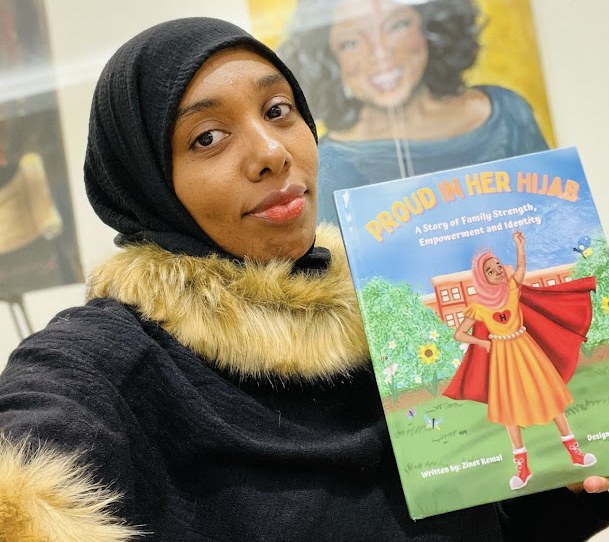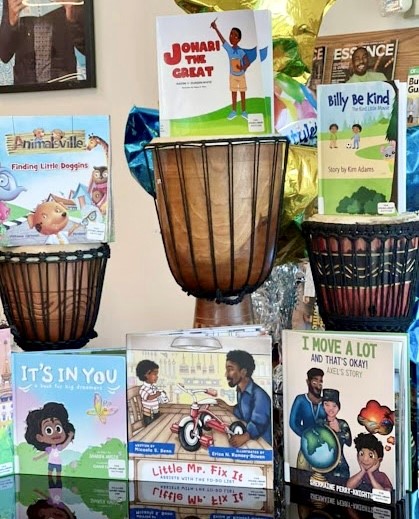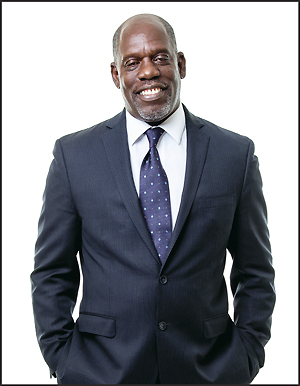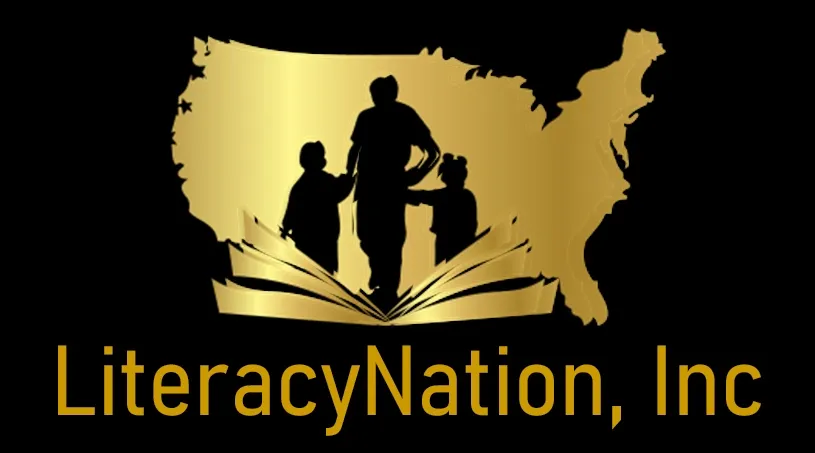Partner with indie authors to share diverse stories
Literacy Nation offers a model for expanding diversity and inclusion in library collections

Despite efforts to increase representation in publishing, the industry remains predominantly white. Authors of color often face a range of challenges, including difficulty finding literary agents, limited access to publishing opportunities, and insufficient marketing and promotion. Richard E. Ashby, Jr. aims to change this through his work with Literacy Nation, which advocates for diversity and inclusion in books and digital resources in libraries.
Ashby and his wife, Charmaine Ashby, founded Literacy Nation in 2011, when they saw a need for literacy resources in underserved communities. Over the past 13 years, Literacy Nation’s mission has evolved, from offering tutoring and literacy services in a donated building, to doing mobile library work (which earned Ashby his nickname of “the sidewalk librarian”), to its current focus on working with independent authors and libraries.
When the COVID-19 pandemic halted Literacy Nation’s in-person services, Ashby began connecting with independent authors on Clubhouse, an audio-based social media app that offers voice-only chatrooms on various topics. He quickly realized that most of the authors were Black women. After learning about the challenges they faced in sharing their work, he saw an opportunity to help.
Through his position at Sto-Rox Public Library, he was able to access OCLC’s cataloging tools to make the authors’ works discoverable through WorldCat. When a library adds a book or resource to their collection using their OCLC cataloging subscription, it automatically appears on WorldCat.org, where anyone can search for it and locate the nearest library with that resource. Now with their own cataloging subscription, Literacy Nation intends to help highlight a diverse range of authors and stories, while also expanding the reach of their stories through advocacy and partnerships.

Coaching authors and promoting their work
While Ashby emphasizes the joy of authors seeing their work shared on a larger scale, he acknowledges that not all self-published books meet quality standards for library collections. Literacy Nation teams up with volunteer beta readers to help authors through the editing and revision process. And once a book meets a set of prescribed quality standards, it’s added to WorldCat with the help of independent catalogers. Literacy Nation also helps authors market their books and sponsors a number of author memberships to the Black Caucus of the American Library Association.
How libraries can help independent authors
Increasing diversity and representation in the publishing industry is a complex undertaking that will likely take many years to achieve. In the meantime, Ashby is working to spread awareness about how libraries can help by connecting with independent authors.
He suggests library staff can:
- Reassess collection development policies and amend them to be more inclusive.
- Catalog independent authors to increase exposure of their work to a broader audience.
- Collaborate with independent authors on programs like storytimes and writing workshops.
- Host book expos or festivals that feature independent authors in panel discussions and book readings.
- Offer space for new or independent authors to promote their work or hold events.
- Expand local author displays to feature independent authors from other regions.
Stories are essential to our human experience, and Ashby has seen the impact of sharing stories that might have otherwise been unheard. For example, when authors started seeing their books on WorldCat.org for the first time, the transformative effect was undeniable.
“We saw the power of WorldCat. I tell somebody, your book is in WorldCat. You can go online and look up your book; your family can look up your book. People are taking screenshots of their books on WorldCat.org. It's like having the Gucci bag of literature, and it's meant so much to everybody.”
Ashby believes that libraries are perfectly positioned to support Literacy Nation’s efforts. The best part? Engaging with diverse independent authors is an excellent way to broaden the range of voices and to build more diverse collections.
Images provided by Literacy Nation, used with permission.
LiteracyNation Freedom to Read-a-Thon
The LiteracyNation Read-a-Thon, now in its second year, promises a day of inspiration, community, and the joy of reading. LiteracyNation Inc., in collaboration with ALA's Ethnic and Multicultural Information Exchange Round Table (EMIERT), proudly presents this remarkable event. Together, we celebrate the power of storytelling across cultures, languages, and genres. Join Literacy Nation for their Read-a-Thon fundraiser at the ALA Annual Conference and Exhibition in San Diego.
Event details:
Date: Saturday, June 29, 2024
Time: 9:00 am – 4:00 pm Pacific Time
Location: Marriott Marquis, Grand Ballroom Section 01
The Freedom to Read-a-Thon celebrates the fundamental right to access diverse literature and promotes intellectual freedom. Participants are invited to read from any genre of their choice for 5 minutes. Whether it’s a classic novel, a banned book, or a contemporary work, this event encourages a love for reading and storytelling.
Featured Highlights:
Authors: The event will feature renowned authors who will contribute to the celebration of literature by sharing their own works.
Proceeds: A portion of the proceeds from the event will support the Merritt Fund, which provides financial assistance to librarians, as well as Literacy Nation and EMIERT.
Partnership: The Freedom to Read Foundation and The Coretta Scott King Round Table are also proud partners of the Freedom to Read-a-Thon.
Join us in championing literacy, diversity, and community building among librarians and literature enthusiasts. Your participation ensures that everyone has the opportunity to explore a wide range of literature and exercise their right to read freely.
Learn more about the Read-A-Thon

Recommended reading
Giving Indie Authors a Voice—American Libraries Magazine
Self-Publishing, Indie Authors, and Libraries—Public Libraries Online
How Library Distribution Works for Indie Authors—Alliance of Independent Authors
LAPL Writes - Indie Author Project—Los Angeles Public Library independent author resources and information for submitting work for circulation
Information for Self-Published Authors—Toronto Public Library collection development policy example
Arapaho Libraries Writers Resources—Writing resources for authors, and a discovery portal for books by independent authors from Colorado

